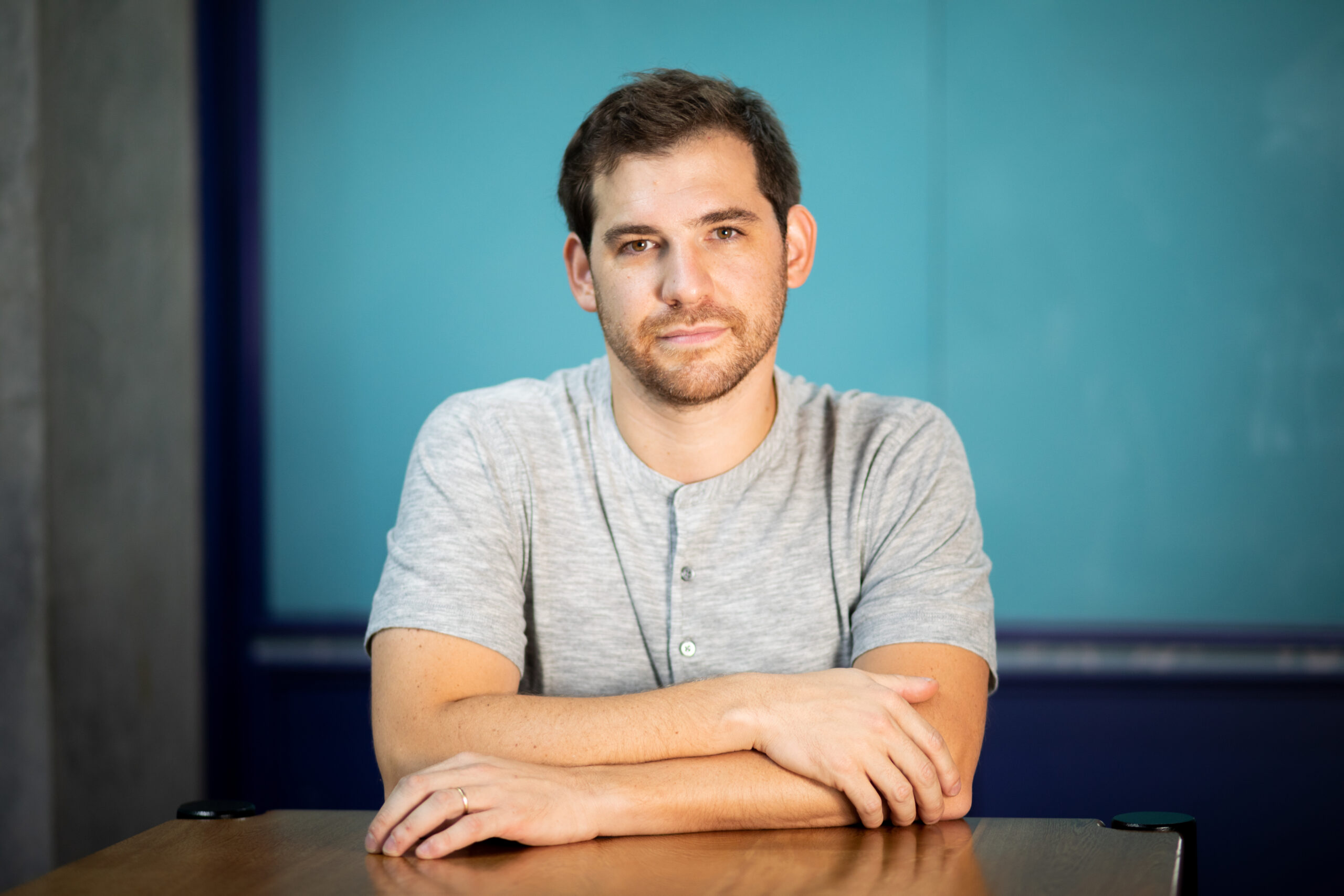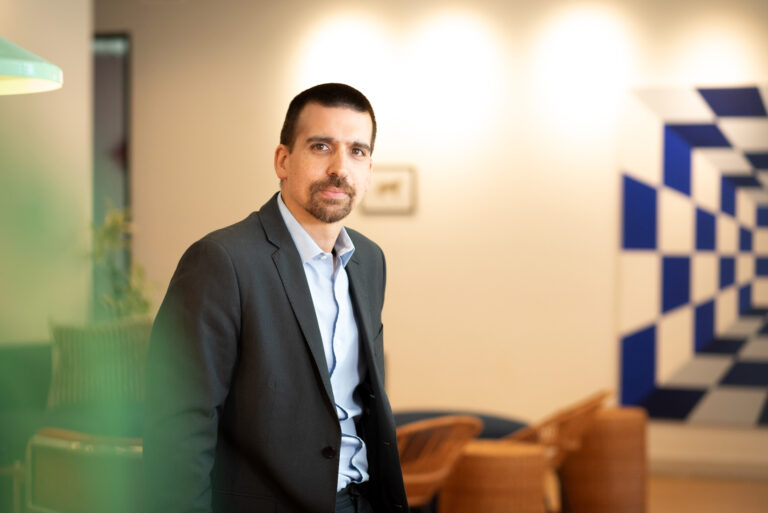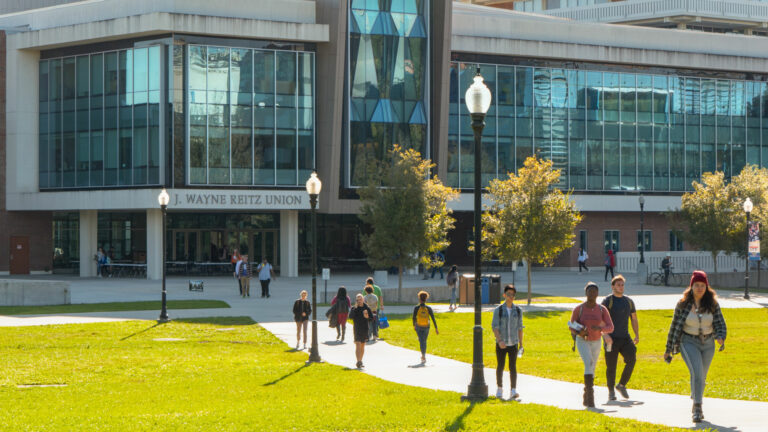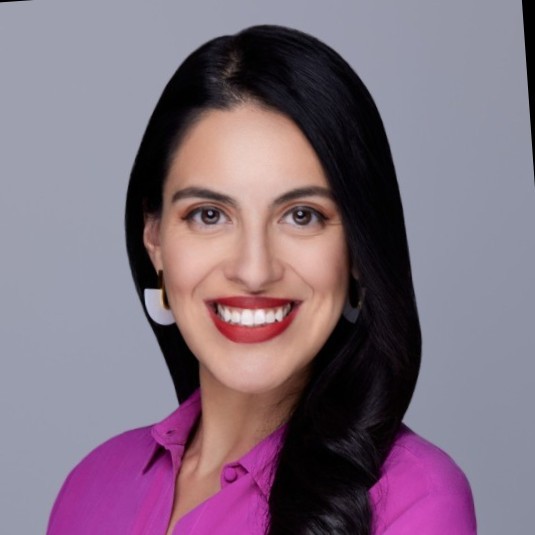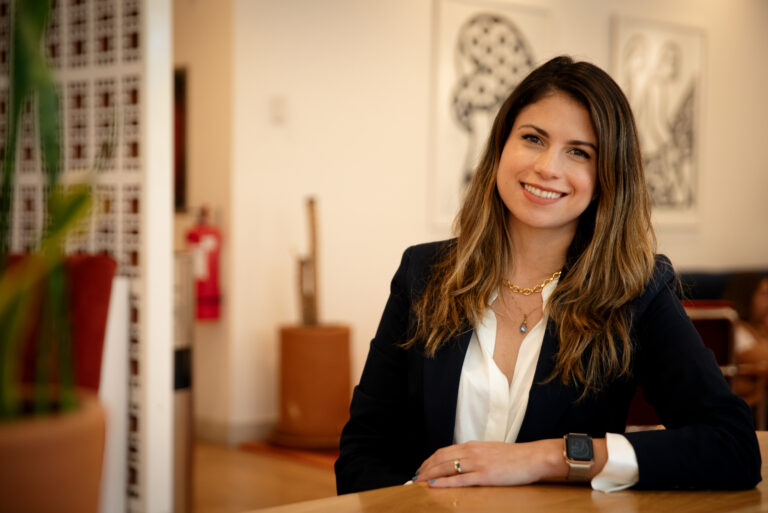Impacting Lives Through Education: Fireside Chat with Nicolas Elton, uPlanner Senior Academic Advisor
In the ever-evolving landscape of higher education, visionary leadership is paramount to navigate the complexities of the sector. Today, we are privileged to engage in a conversation with Nicolas Elton, expert in education, innovation, and educational technology. With over 15 years of experience in both academic and business domains, Nicolas has not only occupied pivotal roles within public and private institutions but has also been a trailblazer at uPlanner, where his contributions have been instrumental in reshaping higher education through AI-powered technology.
In this interview, we will delve into the current trends shaping the educational sphere and explore key education initiatives that Nicolas has spearheaded, including a noteworthy project in Abu Dhabi, conducted in collaboration with the government of the United Arab Emirates. Furthermore, we will trace his professional journey from his tenure at Oracle North America, the enriching projects he championed as the Director of the UAI+D Innovation Center at Adolfo Ibáñez University, to his arrival at uPlanner.
Tell us about your experience and journey in the higher education field. How did you start your path in this field?
I graduated with a degree in Industrial Engineering from Adolfo Ibáñez University in Chile. Upon completing my studies in 2008, I embarked on my career in the technology sector, working for Oracle, one of the world’s leading technology companies. In my role, I managed software implementation projects based in Chile for clients in the United States. It’s important to note that, at that time, tools like Zoom and other similar platforms had not yet come into existence, and our means of communication for collaborative projects relied heavily on conference calls. Thanks to this experience, I witnessed how technologies evolved to what we know today as the Cloud.
In 2010, when we implemented PeopleSoft Campus Solutions for Rochester Institute of Technology (RIT) in upstate New York. Although, it was not necessarily focused on curriculum or educational quality, but rather in the intersection between education and technology, it was there where I had my first contact with education. Over time, PeopleSoft has evolved into one of the largest Student Information Systems (SIS), so I like to think that I was a part of that.
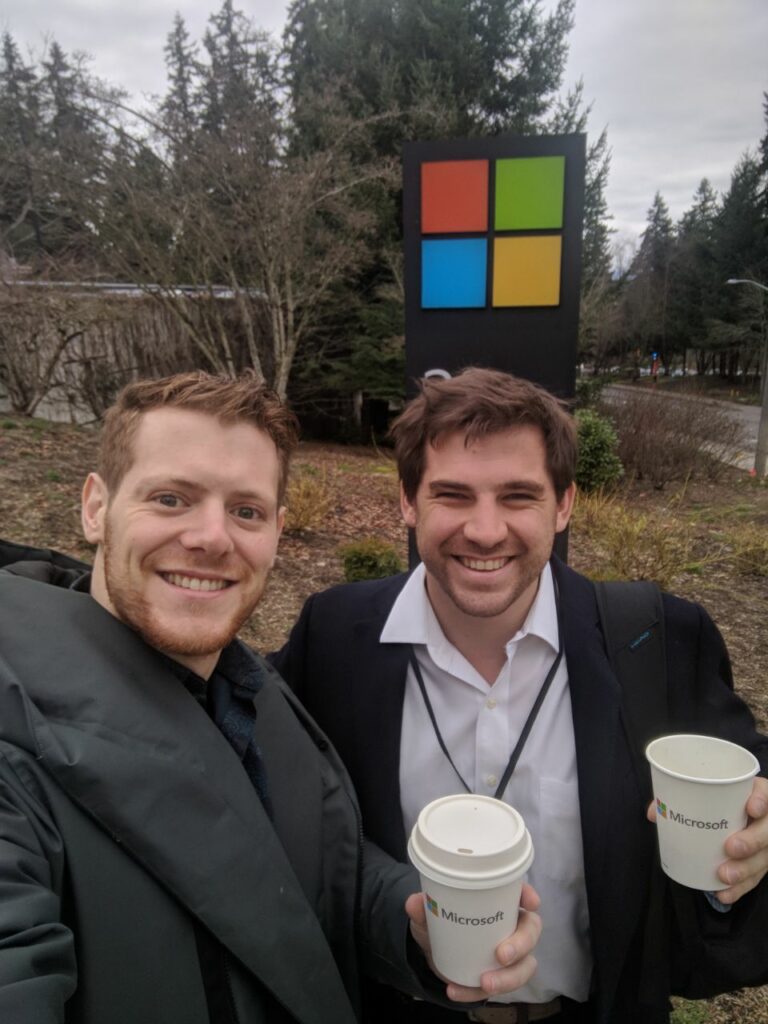
After that first experience at Oracle, how did you continue to grow professionally?
After my experience at Oracle, my professional journey took an intriguing turn. I returned to my alma mater, courtesy of an invitation extended by Alejandro Jadresic, who served as the Dean of Engineering at that time. This invitation marked my true introduction to the world of academia.
This project provided us with funding to modernize the academic aspects of the university. It was an invaluable opportunity in which I delved deeply into the curricular field, honing many of my teaching abilities. The project’s financing enabled me, for the first time, to travel and gain insights into the realities of numerous Chilean, Latin American, and global institutions, significantly expanding my knowledge.
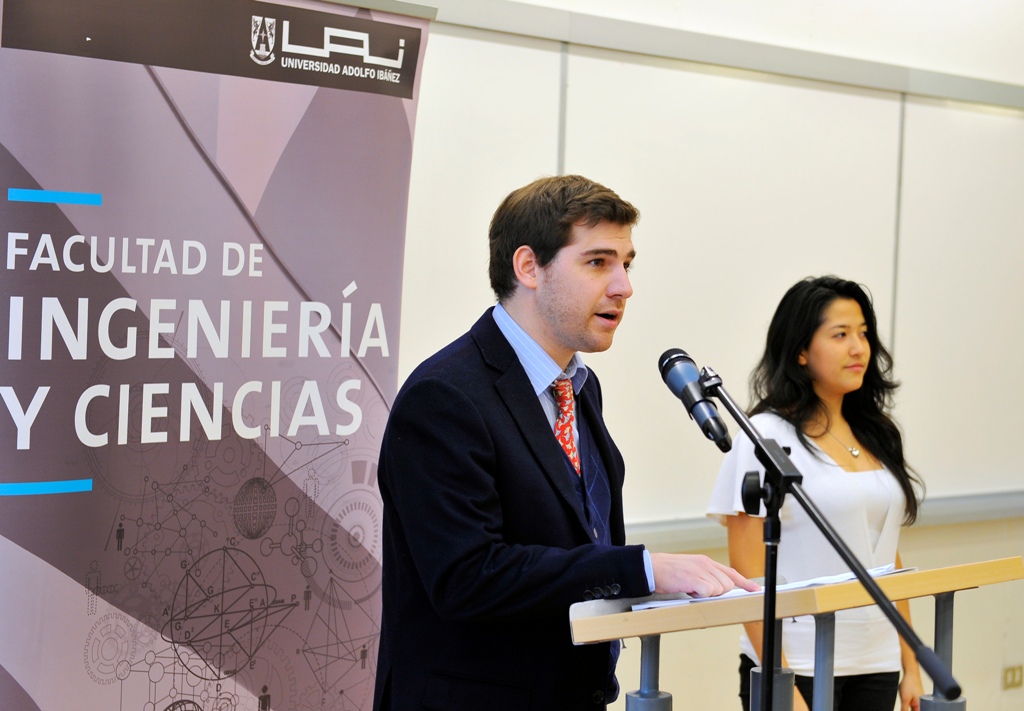
It was during this period that I became acquainted with the accreditation processes conducted by the Accreditation Board for Engineering and Technology (ABET). In collaboration with Alejandro and Professor Roberto Zarama from the Universidad de los Andes in Colombia, we embarked on an initiative to secure one of the initial ABET accreditations in Chile and Latin America.
This endeavor necessitated my active participation in numerous seminars and frequent travel to the United States to understand the various methodologies employed by different universities. These experiences, once again, marked a phase of significant personal and professional growth for me.
Subsequently, we worked on a second project known as ‘Engineering Project 2030.’ This project was profoundly intriguing, as it delved into a relatively lesser-known facet of education—the third objective. It’s worth recalling that a university is founded on three fundamental objectives: the first objective centers on academics, where students are trained; the second objective revolves around research, contributing to the expansion of knowledge; and the third objective, which has gained paramount significance over the last three decades, is dedicated to knowledge transfer.
This third objective is particularly interesting because it focuses on bridging the university with the external world, explaining how universities can create a meaningful impact globally. This entails providing services to industries, as well as translating research findings into tangible realities. For example, consider a professor researching a system to optimize the number of mammograms needed for early breast cancer detection. While this knowledge is crucial, the real challenge lies in transforming this research into public policy. This is precisely what knowledge transfer entails—how universities transcend their boundaries to contribute to the common societal good.
After these two projects that gave you a greater knowledge of Education, what were your next steps?
I specialized in regulatory issues, specifically in education financing, and I was surprised by the limited progress in this area, not only in the third objective but also in quality assurance. It was during my time at Oxford, participating in an eye-opening transfer program, that we, along with Alejandro, established what is now known as the UAI+D, the Innovation and Development Center at Adolfo Ibáñez University.
As I immersed myself in the world of entrepreneurship and startups, I reconnected with a former professor I had assisted, Juan Pablo Mena. Juan Pablo was embarking on a new project and sought my expertise in various areas, such as market management and identifying product development potential. Eventually, he invited me to join uPlanner, where I’ve been dedicated for the past seven years, working to bring our vision to life and revolutionize higher education.
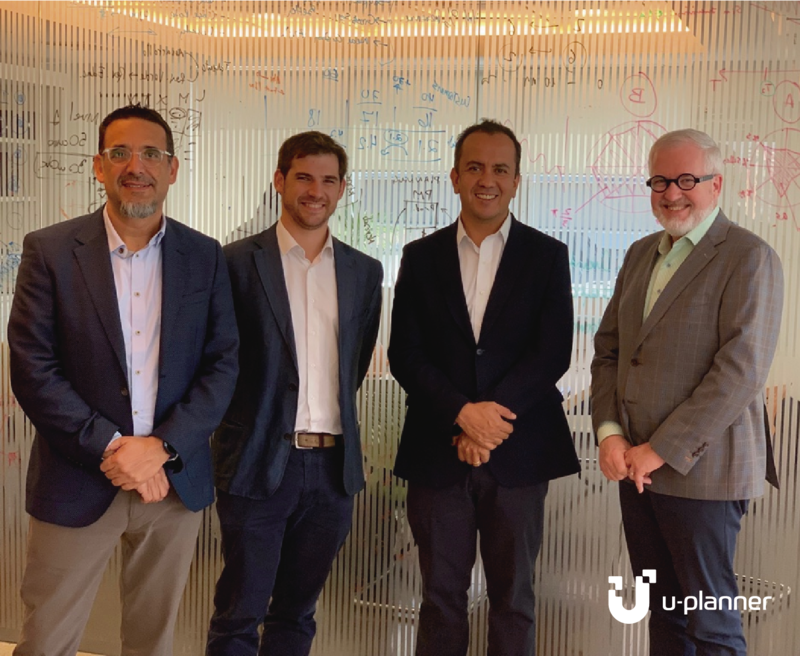
How would you describe your role at uPlanner and what is it like collaborating with your team?
I perceive our role as academic advisors because, from both a sales and product perspective, it’s essential to have individuals deeply engaged in the academic realm. This is where our contributions shine, addressing academic matters, regulatory concerns, interactions with accreditors, centralization, and various other facets. Our focus goes beyond mere technology; it’s centered on creating a substantial impact.
Our team consists of seasoned professionals who come from academia, including individuals with PhDs, and experts well-versed in diverse educational domains. Therefore, we have the capacity to engage in intricate projects that reach universities at the core.
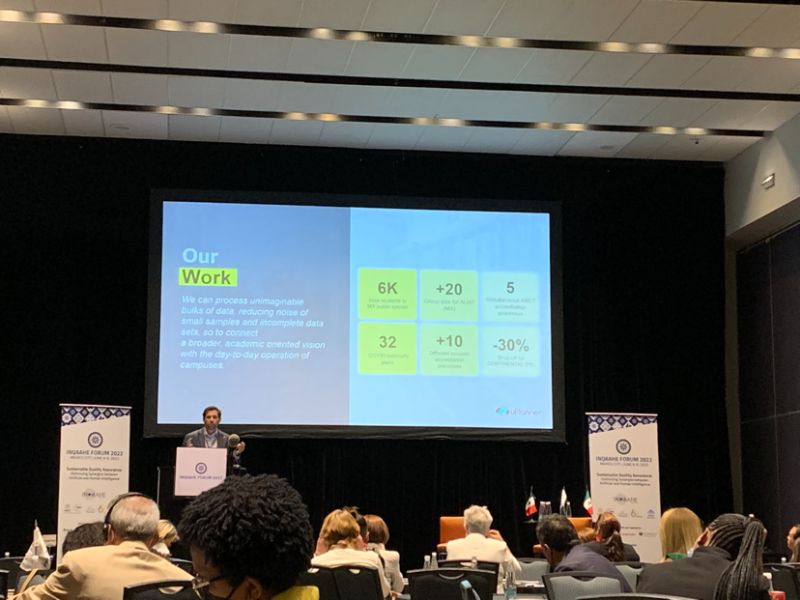
Can you describe the ADEK project in Abu Dhabi and share your experience working?
This journey was special not only because it expanded our geographic horizons as a company, but also because of the challenge it presented for all of us as professionals. From Chile, a country located at the bottom of Latin America, we ventured towards a completely different and highly developed territory such as the Middle East.
The scenario was as follows: I went on this journey solo, lacking any prior experience in market expansion and without the financial backing of a multinational corporation. We had just the right budget, but we held a clear vision of our objectives. It was a journey defined by courage and determination, a testament to our confidence in the quality of our technology and our capability to effect substantial change in such a dynamic and demanding environment.
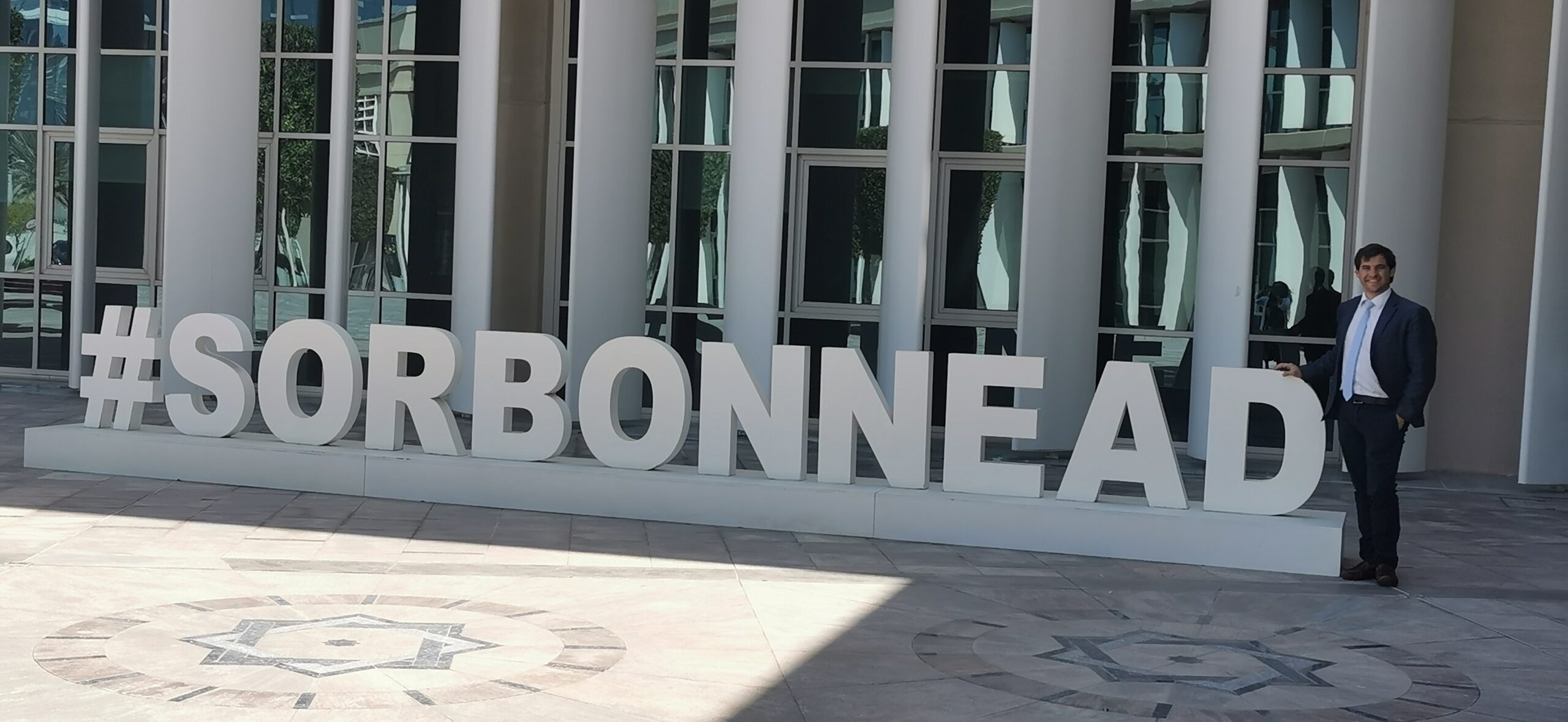
Three years later, the Middle East has become one of our most significant regions in terms of the number of universities we collaborate with. This experience has imparted invaluable lessons. First, it underscores the power of innovation to transcend geographic and cultural boundaries. Moreover, and more significantly, it highlights the global nature of the challenges in education.
How did the initial contact with them come about?
It all started when one of our directors, Jamil Salmi, informed us of a contact in Abu Dhabi, which served as the entry point for our exciting journey into the Middle East market. He encouraged Juan Pablo and myself to come together and articulate our mission at uPlanner and the technological strides we were making.
During our inaugural meeting in Abu Dhabi, we had the privilege of engaging with Susanna Karakhanyan, the Director of Higher Education Policy and Regulation at the Abu Dhabi Department of Education and Knowledge. Through our conversations, we began forging a robust and mutually beneficial relationship. Susanna swiftly grasped our approach and vision for enhancing university quality, and since then, she has become a cornerstone not only for the project but also for my professional journey.
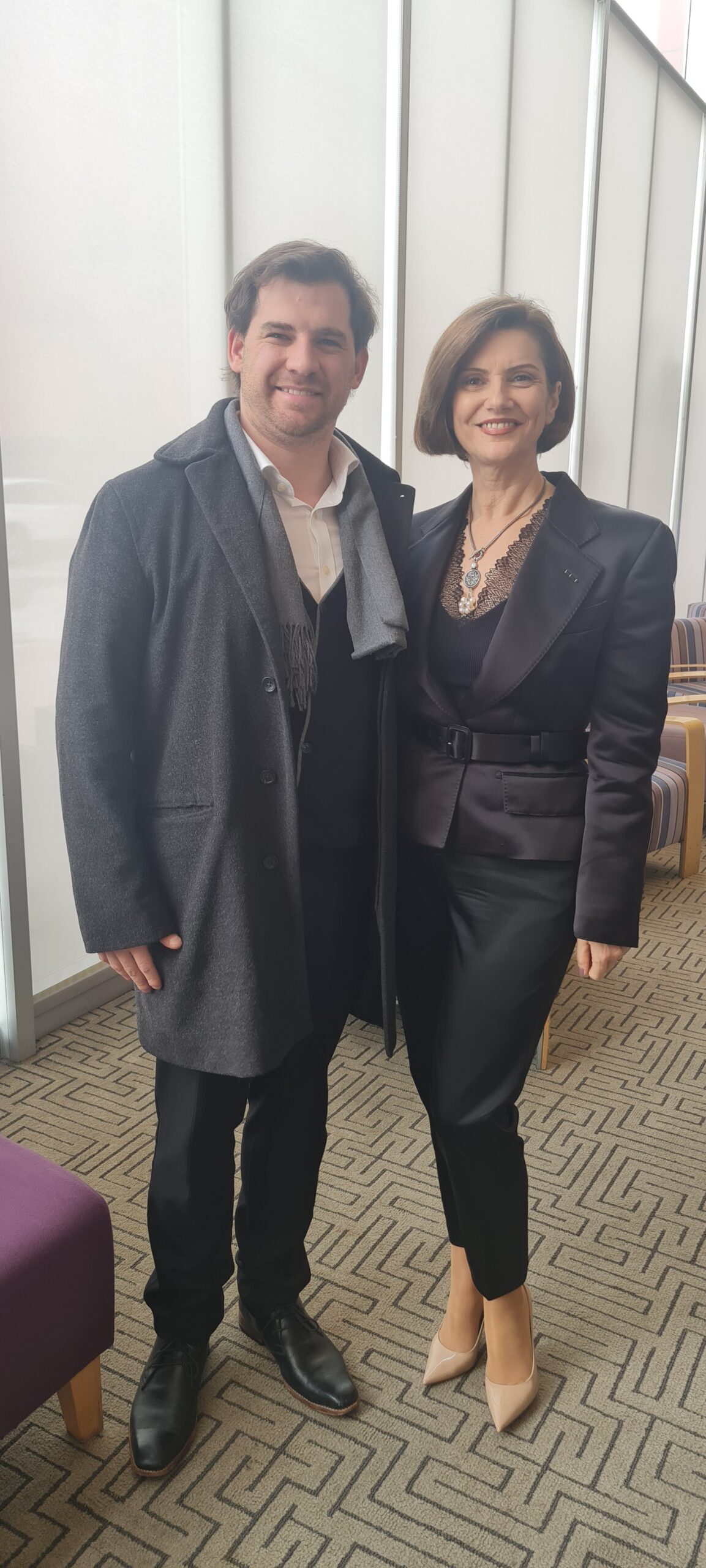
Following our initial meeting, I traveled to Abu Dhabi for in-depth discussions, which led to the preliminary agreement. However, the onset of the pandemic introduced its own set of challenges. Despite these hurdles, we persevered and continued working remotely, unwavering in our dedication and passion for the project. As circumstances improved, I returned to Abu Dhabi, this time accompanied by Sebastián Flores, our Chief Data Officer (CDO), whose pivotal role was instrumental in the project’s execution.
The project we presented in Abu Dhabi was a groundbreaking platform designed to gauge institutional quality within universities. It wasn’t just a sale; it was, in essence, a research project. Before measuring quality, we needed to define what “quality” meant in the context of higher education in Abu Dhabi. Collaborating with Susanna and her team was paramount. Her wealth of experience and unique perspective represented not only the government of Abu Dhabi but also an extensive knowledge base. To illustrate, think of it as if the Peruvian government approached us to create a tool that assessed the quality of all universities in the country solely using data from those institutions. That was the essence of what we were doing in Abu Dhabi.
This project not only marked a significant milestone for our company but also demonstrated how international collaboration and an unwavering focus on quality can redefine higher education. I am excited by the impact our ongoing work will have on education in Abu Dhabi and grateful for the passionate and dedicated team that has made this accomplishment possible.
You have advised several universities and governments on issues of efficiency and quality assurance in higher education. What are some of the typical challenges that institutions encounter in these areas, and how can they be effectively addressed?
This is a complex question, as the challenges in the realm of higher education are multifaceted, and different experts may offer varying perspectives, with neither being definitively right or wrong.
From my point of view, a fundamental challenge is the absence of a shared understanding of the core problem. While it’s clear that tertiary education plays a pivotal role in a country’s economic development, this awareness has led to an excessive politicization of education and an increasing demand for tangible results. This encompasses everything from defining educational standards at local or global levels to gauging their impact on individuals and society as a whole.
Frequently, we encounter generic standards that fail to accommodate the specific complexities and requirements of individual regions and institutions. This lack of adaptation compels us to establish parallel systems merely to meet compliance, thereby creating a disconnect between the expectations of quality and the practical realities of universities. Consequently, a system emerges that, while seemingly adhering to standards, neglects the underlying structural issues.
This situation carries tangible consequences. Worldwide, over 20 thousand institutions utilize, on average, less than half of their infrastructure. We observe a gross enrollment rate of 40%, with only 9% among low-income groups. Approximately 220 million students face financial debt, and female enrollment accounts for 60%, yet a mere 30% are involved in STEM areas. The dropout rate, standing at 49%, is already a matter of concern, and only 22% of those who do complete their education manage to secure employment in their chosen fields of study.
On one side, governments impose stringent and inflexible standards, while universities, on the other, have adapted to circumventing these regulations without addressing the root issues. This divergence between regulatory expectations and the actual reality within universities creates a substantial challenge that we must confront to ensure that the quality of education adapts to the ever-evolving needs of our society.
What recent trends or innovative approaches have you observed in higher education, and how are they impacting the way institutions manage their academic and administrative operations?
I must admit that I’ve been asked this question numerous times throughout the years, and I can’t recall ever giving the same answer twice. A decade ago, as I was embarking on my journey in higher education, we were discussing MOOCs, flipped classrooms, gamification, and various other ideas as potential game-changers. Back then, we believed that these innovations would lead to a profound revolution, but time has shown us that our predictions were somewhat off the mark.
Today, there’s no denying that the disruption caused by the online realm is a significant concern. Online Program Managers (OPMs), distance education, remote work, and more have emerged as real alternatives, compelling universities to adapt by reshaping their offerings and comprehending this new landscape. I’m not suggesting that traditional education is under threat; rather, this transformation presents new opportunities, particularly for those who were previously excluded from the system. It’s worth noting that many university faculties have embraced the distance education mode, and I find it promising; I believe it offers a substantial potential for impact in this domain.
On another front, it’s challenging not to discuss the role of artificial intelligence. However, I’d like to approach it from a different perspective that aligns with the paradigm shift taking place in education. In the past, one attended a university to acquire knowledge and paid for this privilege because such knowledge was challenging to obtain elsewhere. In today’s age of the information revolution, content has become a commodity, and it’s doubtful that anyone would pay solely for access to information. This shift represents a fundamental change, and it’s essential to recognize that it’s been gradually permeating higher education for some time. AI’s disruptive influence may be the final catalyst in this process.
What’s fascinating about this shift is that it’s not initiated by universities but rather by students who have begun to adopt highly diverse learning patterns. This shift forces institutions to adapt and raises questions about flexible learning trajectories and micro credentials. In my view, these are the pivotal issues because they usher in a profound transformation in our understanding of tertiary education.
As for uPlanner, how can we align ourselves with these ongoing changes and how can we assist universities?
I once had an instructor who always told us that everyone wants to think outside the box, but to get out of the box you must know what tools you have inside your box.
Institutions often struggle to fully grasp their challenges, which significantly impacts the quality of education they provide. This is where we come in. Our role is to help universities establish a strong foundation upon which they can build. Without this foundation, universities often find it exceedingly difficult to offer high-quality services or effectively address the issues they encounter. Mere surface-level solutions won’t suffice; addressing these challenges at the root is crucial.
At uPlanner, we intervene at the core of the university, grounded in a robust data-driven approach encompassing technology, processes, and the individuals involved. This empowers institutions to pinpoint their areas of concern and visualize the specific challenges they face. In doing so, we enable the university to take practical and effective measures to enhance its circumstances. Our primary focus is on reinforcing the very framework of the university, a transformation that leads to a noticeable improvement in the quality of education offered.
It’s essential to understand that without a firm foundation and a profound comprehension of the data, any endeavor to enhance the educational experience is likely to encounter significant hurdles. Our mission is to provide universities with the vital support they need to surmount these challenges, ultimately equipping them to deliver quality education that adequately prepares students for the demands of the contemporary world.
Finally, is there any message or advice you’d like to convey to those involved in higher education who seek to enhance their processes and outcomes?
What often occurs is that universities aspire to address a multitude of issues, much like the ones I mentioned earlier, and attempt to tackle numerous tasks simultaneously. However, the reality is that we often lack even the most fundamental data. We may not even know the exact number of students we have or the identities of our graduates.
My suggestion is to maintain ambitious objectives but to also maintain a critical view of our institution’s actual situation. We sometimes encounter universities that have become entirely disconnected from their own reality. This disconnection becomes glaringly apparent when we read accreditation reports, which suggest that that given university can compete with institutions like Harvard, but the daily experience on campus reveals a different truth. We come to realize that there are significant gaps, and our connection to reality has faltered.
So, my advice is to re-establish that connection to reality and rectify the foundational issues before building grandiose dreams on unstable grounds. It’s imperative to confront our limitations and build from there to create a sturdy and authentic higher education environment. Only by facing our realities head-on can we make substantial progress and create an educational experience that genuinely lives up to our expectations.

